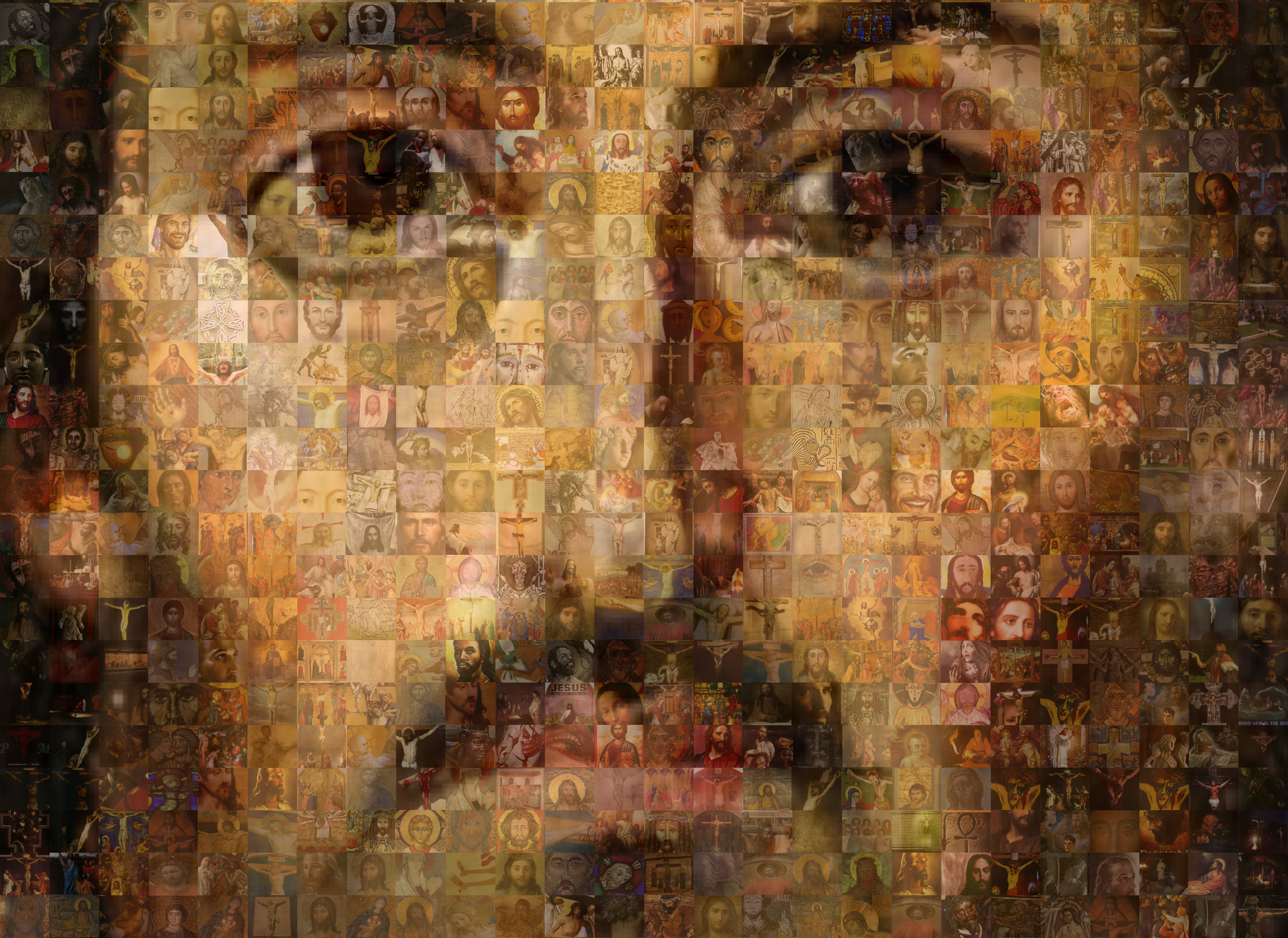An Examination of Colossians 1:19 and 2:9
When Paul wrote to the church in Colossae about Jesus’ supremacy, he said:
Colossians 1:19 (NASB) For it was the Father’s good pleasure for all the fullness to dwell in Him [Jesus] (emphasis added)
Colossians 2:9 (NASB) For in Him [Jesus] all the fullness of Deity dwells in bodily form (emphasis added)
What does it mean that Jesus is full of deity? Trinitarians interpret theses verses to mean that Jesus is God. However, when we recall Paul’s Christology and we use Scripture to interpret Scripture, we see that Paul had a very different meaning in mind.
Paul’s Christology
Who did Paul believe Jesus to be?
Colossians 1:1-3 (NASB) Paul, an apostle of Jesus Christ by the will of God, and Timothy our brother, 2 To the saints and faithful brethren in Christ who are at Colossae: Grace to you and peace from God our Father. 3 We give thanks to God, the Father of our Lord Jesus Christ, praying always for you (emphasis added)

Paul differentiates here, as he does in all of his letters, between God, who is the Father, and Jesus who is the Christ (Messiah). The apostle understands that the one God [1] is not a triune being:
1 Corinthians 8:5-6 (NASB) For even if there are so-called gods whether in heaven or on earth, as indeed there are many gods and many lords, 6 yet for us there is but one God, the Father, from whom are all things and we exist for Him; and one Lord, Jesus Christ, by whom are all things, and we exist through Him. (emphasis added)
Paul clearly identifies the one God as being the Father and not a supposed Trinity. Unfortunately, some confuse the titles Lord and Christ as designations for deity. However, Lord simply means lord, master, or sir, while Christ means the anointed one (i.e., the Messiah). Neither title belonged to Jesus inherently, rather God appointed him to both positions:
Acts 2:36 (NASB) “Therefore let all the house of Israel know for certain that God has made Him both Lord and Christ—this Jesus whom you crucified.” (emphasis added)
What’s more, Paul testifies that Jesus is the human mediator and not the one God:
1 Timothy 2:5 (NASB) For there is one God, and one mediator also between God and men, the man Christ Jesus (emphasis added)
How then are we to interpret Paul’s comments that the fullness of deity dwells in Jesus? The answer is revealed when we analyze the texts under review, and we allow Scripture to interpret Scripture.
It was the Father’s good pleasure
Take a closer look at the following passage and observe who Paul credits for the plan of reconciliation:
Colossians 1:19-20 (NASB) For it was the Father’s good pleasure for all the fullness to dwell in Him [Jesus], 20 and through Him [Jesus] to reconcile all things to Himself [God the Father], having made peace through the blood of His cross; through Him, I say, whether things on earth or things in heaven. (emphasis added)
 Paul credits the Father as being the one who was pleased to reconcile all things. Moreover, the Father is the one to whom all things have been reconciled. On the other hand, Jesus is the means through which God the Father accomplished His will. Paul did not give credit to the Son or the Spirit for desiring or implementing the marvelous plan of reconciliation. Nor are they the ones to whom the world is reconciled. This is a perplexing and problematic omission for those who hold to the doctrine of the Trinity.
Paul credits the Father as being the one who was pleased to reconcile all things. Moreover, the Father is the one to whom all things have been reconciled. On the other hand, Jesus is the means through which God the Father accomplished His will. Paul did not give credit to the Son or the Spirit for desiring or implementing the marvelous plan of reconciliation. Nor are they the ones to whom the world is reconciled. This is a perplexing and problematic omission for those who hold to the doctrine of the Trinity.
What does it mean to have the fullness of deity?
The word deity in the following verse is theotes in the Greek. This is the only time the word is used in Scripture:
Colossians 2:9-10 (NASB) For in Him [Jesus] all the fullness of Deity dwells in bodily form, 10 and in Him you have been made complete, and He is the head over all rule and authority;
The King James Version and the New King James Version misleadingly translate theotes as Godhead, a term used to designate the Trinity. However, this is a interpolation,[2] because at the time that Paul wrote the letter, the concept of the Trinity and the terms used to describe it, had yet to be developed. It would take an astounding 320 more years for the doctrine to fully evolve before it became the official dogma of the Catholic Church at the Council of Constantinople. According to Liddell and Scott’s Greek English Lexicon, it is more appropriate to translate theotes as divinity or divine nature. They cite the use of theotes by Greek authors who wrote during the same time period as Paul to make their case. [3] Proper hermeneutics dictates that we translate Paul’s use of theotes in accordance with its first century usage and not according to a fourth century post-Biblical definition. Thus, it was the fullness of the divine nature that dwelt in Jesus. But does this mean that Jesus is God? Not unless we are prepared to say that believers are deity also for, according to Scripture, we, too, have the divine nature:
2 Peter 1:4 (NASB) For by these He [God] has granted to us His precious and magnificent promises, so that by them you may become partakers of the divine nature, having escaped the corruption that is in the world by lust. (emphasis added)
What’s more, Paul prayed for the Ephesians to be filled up to all the fullness of God:
Ephesians 3:19 (NASB) and to know the love of Christ which surpasses knowledge, that you may be filled up to all the fullness of God. (emphasis added)
 We need to be consistent in our interpretations. No one would suggest that Peter and Paul were saying in these passages that believers are also deity. In the same way, Jesus had the fullness of God dwelling in him, but it doesn’t mean he is God.
We need to be consistent in our interpretations. No one would suggest that Peter and Paul were saying in these passages that believers are also deity. In the same way, Jesus had the fullness of God dwelling in him, but it doesn’t mean he is God.
God was in Christ, empowering him to do His will
What then does it mean that the fullness of deity or the divine nature dwelt in Jesus and can dwell in us? Luke provides us with some insight. When Jesus was baptized in water, the Spirit descended on him. Afterwards, Luke tells us that Jesus was “full of the Holy Spirit.”[4] Furthermore, John wrote in his gospel that God gave Jesus “the Spirit without measure,” or without limit. That is, he was full of the Spirit.[5] Lest we think that this means Jesus is God, we must remember that numerous times in Scripture we are told that believers were also filled with the Spirit.[6] When we review these passages we understand that to be filled with the Spirit means that one is full of the power and authority that God has bestowed upon a person in order to accomplish His will. Therefore, when Paul writes that Jesus was full of deity, or the divine nature, it means that God was, by His Spirit, working in and through Jesus to accomplish His will. This is further evidenced by the following verse:
2 Corinthians 5:18-19 (NASB) Now all these things are from God, who reconciled us to Himself through Christ and gave us the ministry of reconciliation, 19 namely, that God was in Christ reconciling the world to Himself…[7] (emphasis added)
This verse echoes what Paul wrote to the Colossians. God was in Christ, that is, the fullness of deity or the divine nature was dwelling in Christ, reconciling the world to Himself, that is, to God the Father. Scripture attests that God was fully in Christ (by the Spirit), not that Christ was fully God. This interpretation is in keeping with Paul’s Christology and the rest of Scripture. Moreover, it is logically sound. Otherwise, if Jesus is God, we must ask, Why would and how could God the Father give to God the Son the fullness of God? It makes no sense as Jesus would innately be fully God. However, if we, like Paul, understand that Jesus is the human Messiah, it is quite reasonable that he would need to be filled with the Spirit in order to accomplish the ministry God had given him.
For Jesus to be full of the divine nature or to have the fullness of deity dwelling in him is no more an indicator that he is God than it is for us. For we, too, are partakers of God’s divine nature, and we can be filled up to His fullness. Just ask Peter and Paul.
[1] Deuteronomy 6:4; Mark 12:29; Isaiah 45:6, 9, etc.
[2] An interpolation is an insertion of a word(s) into a text that alters its meaning. Merriam Webster Dictionary, https://www.merriam-webster.com/dictionary/interpolate
[3] “Colossians 2:9,” BiblicalUnitarian.com, accessed 10-20-19.
[4] Luke 4:1.
[5] John 3:34.
[6] Elizabeth, Luke 1:41; Zecharias, Luke 1:67; believers, Acts 2:4, 4:31, 6:3; 13:52; Ephesians 5:18; Peter, Acts 4:8; Saul, Acts 9:17; Stephen, Philip, Prochorus, Nicanor, Timon, Parmenas and Nicolas, Acts 6:5; Stephen again in Acts 7:55; Barnabas, Acts 11:24.
[7] See John 14:10.



